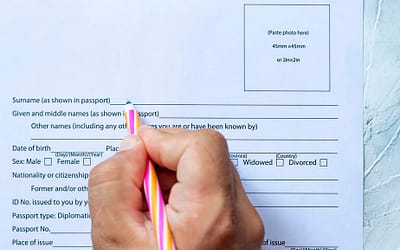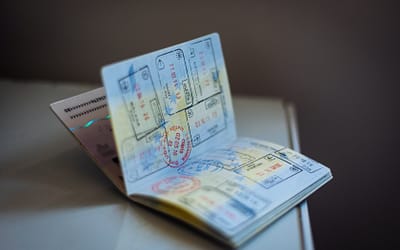The Student Visa (留学ビザ, Ryūgaku Visa) for Japanese language schools in Japan is a visa category designed for international students who wish to study the Japanese language at accredited language schools. Here’s everything you need to know about the student visa for Japanese language school students:
Purpose:
The student visa for Japanese language schools allows foreign students to pursue studies in the Japanese language at accredited language schools in Japan. It is designed to provide students with a focused language learning experience and cultural immersion.
Eligibility Criteria:
Acceptance into a Recognized Language School: You must have an official acceptance letter from a recognized Japanese language school in Japan. The school should be registered and approved by the Ministry of Justice.
Financial Requirements: You need to demonstrate that you have sufficient funds to support yourself during your stay in Japan. This includes tuition fees, living expenses, accommodation, and other associated costs. In case you do not have sufficient funds to support yourself during your stay in Japan, you will need a guarantor. The guarantor can be a family member that supports you financially.
Genuine Intentions: You must show a genuine intention to study the Japanese language and adhere to the laws and regulations of Japan. Your background, academic qualifications, and motivations will be considered during the application process.
Application Process:
Certificate of Eligibility (COE): The first step is to obtain a Certificate of Eligibility (COE) from the Immigration Bureau of Japan. Your chosen Japanese language school will assist you through Japanice in applying for the COE. This document verifies your eligibility for a student visa.
Visa Application: Once you receive the COE, you need to submit it, along with other required documents, to the nearest Japanese embassy or consulate in your home country. The specific documents may vary, but generally include a completed visa application form, passport, passport-sized photos, proof of financial ability, and the COE.
Visa Approval: The embassy or consulate will review your application and supporting documents. If approved, they will affix the student visa to your passport. You will need to collect your passport with the visa before traveling to Japan.
Visa Duration: The duration of the student visa is typically based on the length of your Japanese language program. The visa can be granted for the entire duration of your language course, up to a maximum of two years. If you plan to continue your studies or pursue higher education in Japan, the visa can be extended.
Part-time Work:
As a student visa holder, you are allowed to work part-time in Japan, but there are certain restrictions. Generally, you can work up to 28 hours per week and 40 hours during designated periods, such as semester breaks. However, it’s crucial to obtain permission to engage in part-time work from the Immigration Bureau and adhere to the regulations set by the Japanese government.
Visa Renewal:
If you intend to continue your studies in Japan beyond the initial visa period, you will need to renew your student visa. The renewal process involves submitting the necessary documents to the Immigration Bureau within Japan before your current visa expires. It’s essential to begin the renewal process well in advance to avoid any visa-related issues.
Post-Graduation Employment and Change of Visa Status:
Upon completion of your Japanese language program, you may be eligible to apply for a work visa to seek employment in Japan. The specific requirements and procedures for obtaining a work visa after graduation will depend on the type of job you intend to pursue and the respective visa category associated with it. In general, your future employer takes care of the visa application process. The change of visa status is relatively smooth compared to the application for a Certificate of Eligbility. This process is much faster and requires less criterias and paperwork.
It’s important to note that visa requirements and procedures may vary depending on your nationality and individual circumstances. Therefore, it is advisable to consult with a scpecialized agent like Japanice or with the official website of the Ministry of Foreign Affairs of Japan or contact the Japanese embassy or consulate in your home country for detailed and up-to-date information on student visa requirements for Japanese language school students.




0 Comments